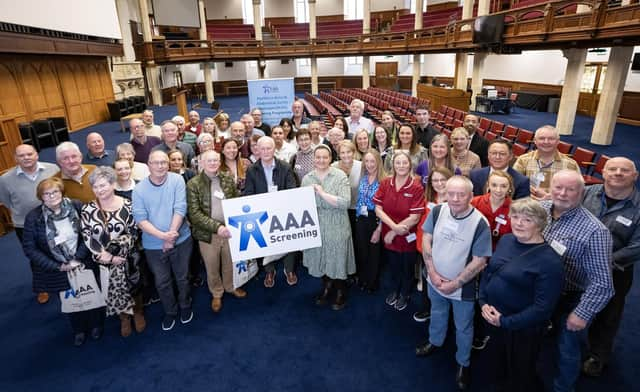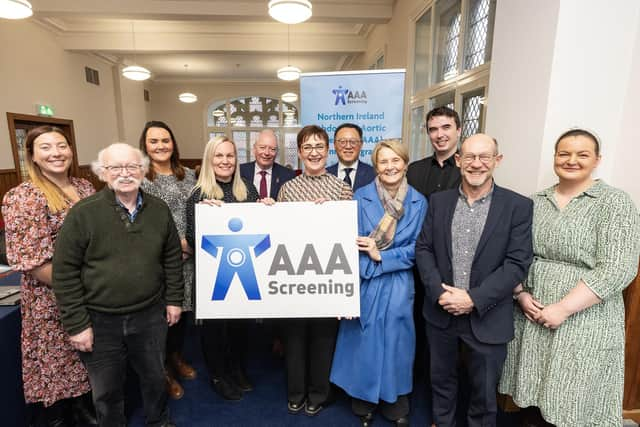Event highlights need for men to attend for potentially life-saving screening


In Northern Ireland, the AAA Screening Programme offers this test to men in the year they turn 65. The success of the programme, in detecting and successfully managing this condition, has been highlighted at an event in Belfast attended by men who have taken part in screening.
The AAA Screening Programme’s eleventh annual service user event in Belfast brought together a wide range of healthcare professionals and men who have, or had, an AAA detected through screening. The aim of the event was to encourage service users to share their experiences of the screening programme and for the programme to consider future developments.
Advertisement
Advertisement
Dr Christine McKee, Public Health Consultant at the Public Health Agency (PHA), said: “Most people with an AAA will be unaware that they have an aneurysm as they rarely have symptoms.


“Each of the men at this event who had their aneurysm detected through the screening programme highlights just how important it is to consider attending for screening when invited.
“The AAA screening check is a quick, simple, painless ultrasound scan provided free of charge. Men who have an AAA detected will, depending on the size of the aneurysm, either be monitored with surveillance scans or referred to the specialist vascular team to consider treatment options.
“The event also provided an opportunity for those involved in the delivery of AAA screening services to take stock and consider feedback from the programme’s service users, which is important in identifying priorities that will help shape the future of the programme in Northern Ireland."
Advertisement
Advertisement
Men over 65 who have not been screened before can phone the screening office and request an appointment on (028) 9063 1828. The programme, which was introduced in July 2012, provides screening at 24 different locations across Northern Ireland.
Those eligible for screening will receive an invitation leaflet in the post at the home address provided by their GP. It is therefore important that your GP has your most up-to-date address and correct date of birth, as you may miss the chance to take part in the programme if these are inaccurate.
The risk of having an abdominal aortic aneurysm can also increase if:
• You smoke;
• You have high blood pressure;
• Your brother, sister or parent has, or has had, an abdominal aortic aneurysm.
However, everyone who is invited for screening should consider attending, even if none of these risk factors applies to them.
For further information visit www.nidirect.gov.uk/aaa.